
Doing Business 2017 (Cambodia Profile): Equal Opportunity for All
Publication Year: 2017 / Sources: World Bank GroupDoing Business sheds light on how easy or difficult it is for a local entrepreneur to open and run a small to medium-size business when complying with relevant regulations. It measures and tracks changes in regulations affecting 11 areas in the life cycle of a business: starting a business, dealing with construction permits, getting electricity, registering property, getting credit, protecting minority investors, paying taxes, trading across borders, enforcing contracts, resolving insolvency and labor market regulation.
Download: English | Khmer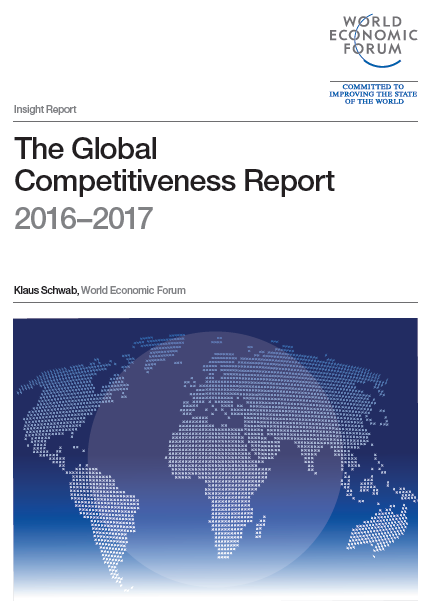
The Global Competitiveness Report 2016-2017
Publication Year: 2016 / Sources: Klaus Schwab, World Economic ForumCambodia ranks 89th, up one position from last year. Among Asian nations, it is the one that has posted the largest GCI score improvement—from 3.5 to 4.0—since 2007. Despite the positive trend, the challenges are many and significant. Cambodia ranks no better than 50th in any of the 12 pillars of the Index; in half of them it sits beyond the 100th mark. Of particular concern is its mediocre performance in three of the four areas that constitute the basic drivers of competitiveness: institutions (104th, up seven), infrastructure (106th, down five), and health and primary education (103rd, down 16). Moreover, Cambodia ranks 124th in higher education and training, its poorest performance in any pillar. It is estimated that secondary education enrollment is around 50 percent. With a median age of 23.8, Cambodia is home to one of the youngest populations in Asia. Ensuring access to quality of education for all should therefore be a policy priority.
Download: English | Khmer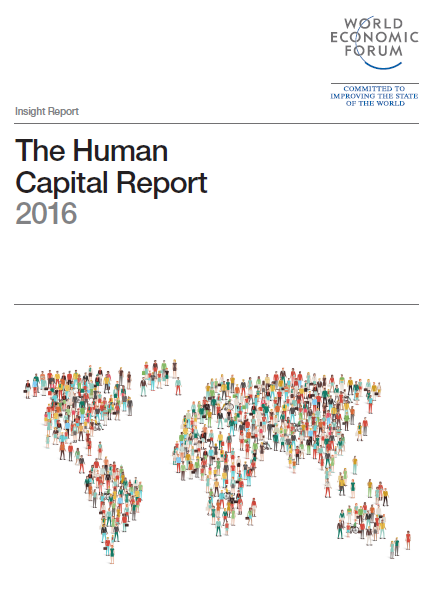
The Human Capital Report 2016
Publication Year: 2016 / Sources: World Economic ForumThe Human Capital Report aims to combine public international statistics, qualitative perception data and big data metrics to provide a comprehensive picture of the situation today as well as the opportunities for the future. The Human Capital Index quantifies how 130 countries are developing and deploying their human capital, and tracks progress over time. It takes a life-course approach to human capital, evaluating the levels of education, skills and employment available to people in five distinct age groups. In addition to the Index, the Report also explores skills in-depth through a unique partnership with LinkedIn and the emerging shape of the labour market on digital platforms, using data from Care.com, Didi Chuxing, Uber and Upwork.
Download: English | Khmer
Rule of Law Index 2015
Publication Year: 2015 / Sources: World Justice Project (WJP)The Rule of Law Index 2015 was prepared by The World Justice Project (WJP)’s research team. This research has measured on 8 factors: constraints on government powers, absence of corruption, open government, fundamental rights, order and security, regulatory enforcement, civil justice, and criminal justice. A ninth factor, informal justice, is measured but not included in aggregated scores and rankings. These factors are intended to reflect how people experience rule of law in everyday life. This WJP Rule of Law Index 2015 are derived from more than more than 100,000 household and expert surveys in 102 countries and jurisdictions. The report showed that Cambodia ranked 99 out of 102 countries and dead last in the East Asia and Pacific region.
Download: English | Khmer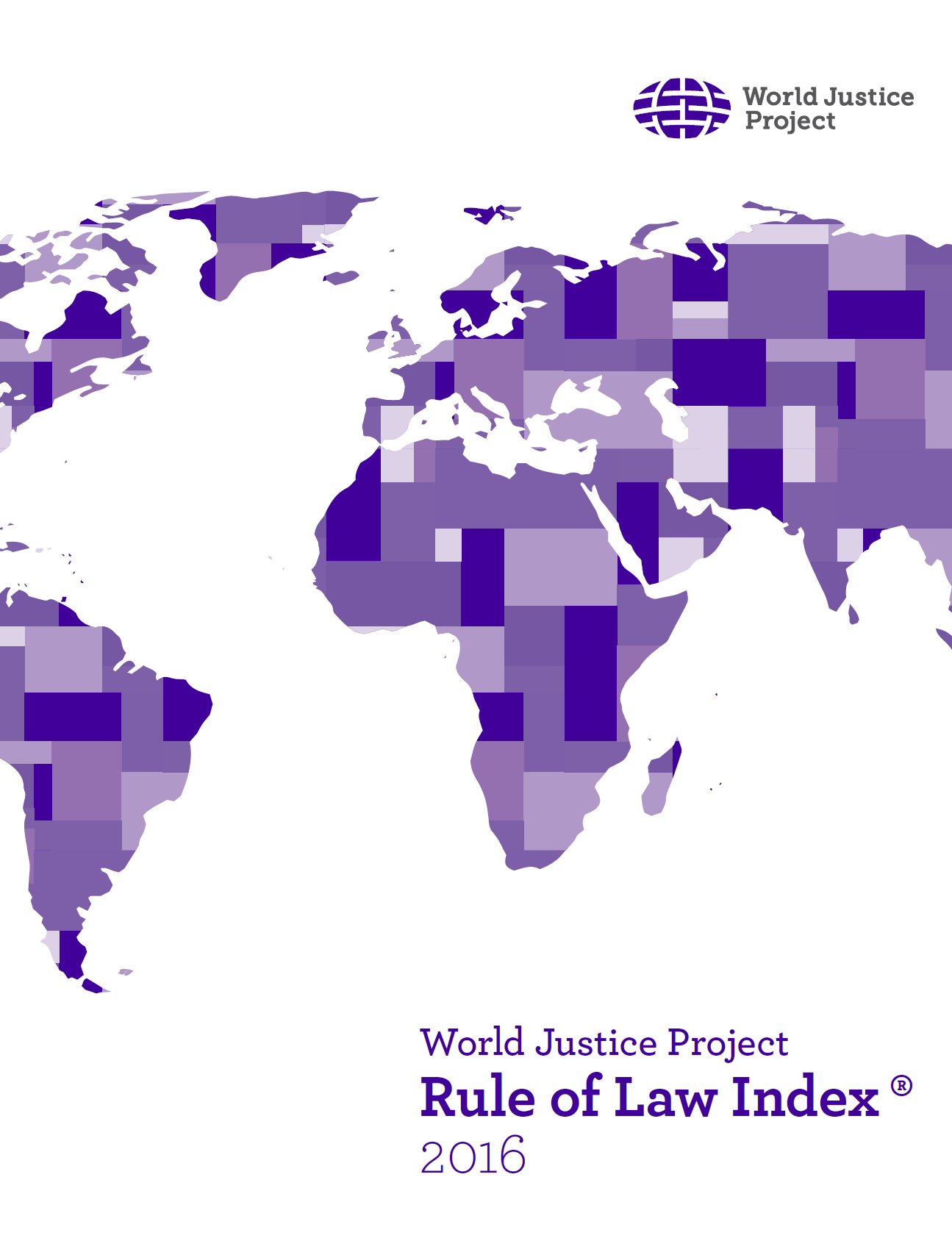
Rule of Law Index 2016
Publication Year: 2016 / Sources: World Justice Project (WJP)The Rule of Law Index 2016 was prepared by The World Justice Project (WJP)’s research team. This research has measured on 9 factors: constraints on government powers, absence of corruption, open government, fundamental rights, order and security, regulatory enforcement, civil justice, and criminal justice. A ninth factor, informal justice, is measured but not included in aggregated scores and rankings. These factors are intended to reflect how people experience rule of law in everyday life. This WJP Rule of Law Index 2016 are derived from more than 110,000 households and 2,700 expert surveys in 113 countries and jurisdictions. The reports showed that Cambodia ranked 112 out of 113 countries and dead last in the East Asia and Pacific region. Of the 15 countries surveyed from the East Asia and Pacific region, Cambodia scored lowest and New Zealand highest, with countries like Mongolia and Malaysia falling somewhere in between. Among all 113 countries rated worldwide, Cambodia came in 112, scoring just below Afghanistan and above only Venezuela, a country experiencing food shortages and frequent violence. Cambodia dropped two points in the ranking since last year’s report.
Download: English | Khmer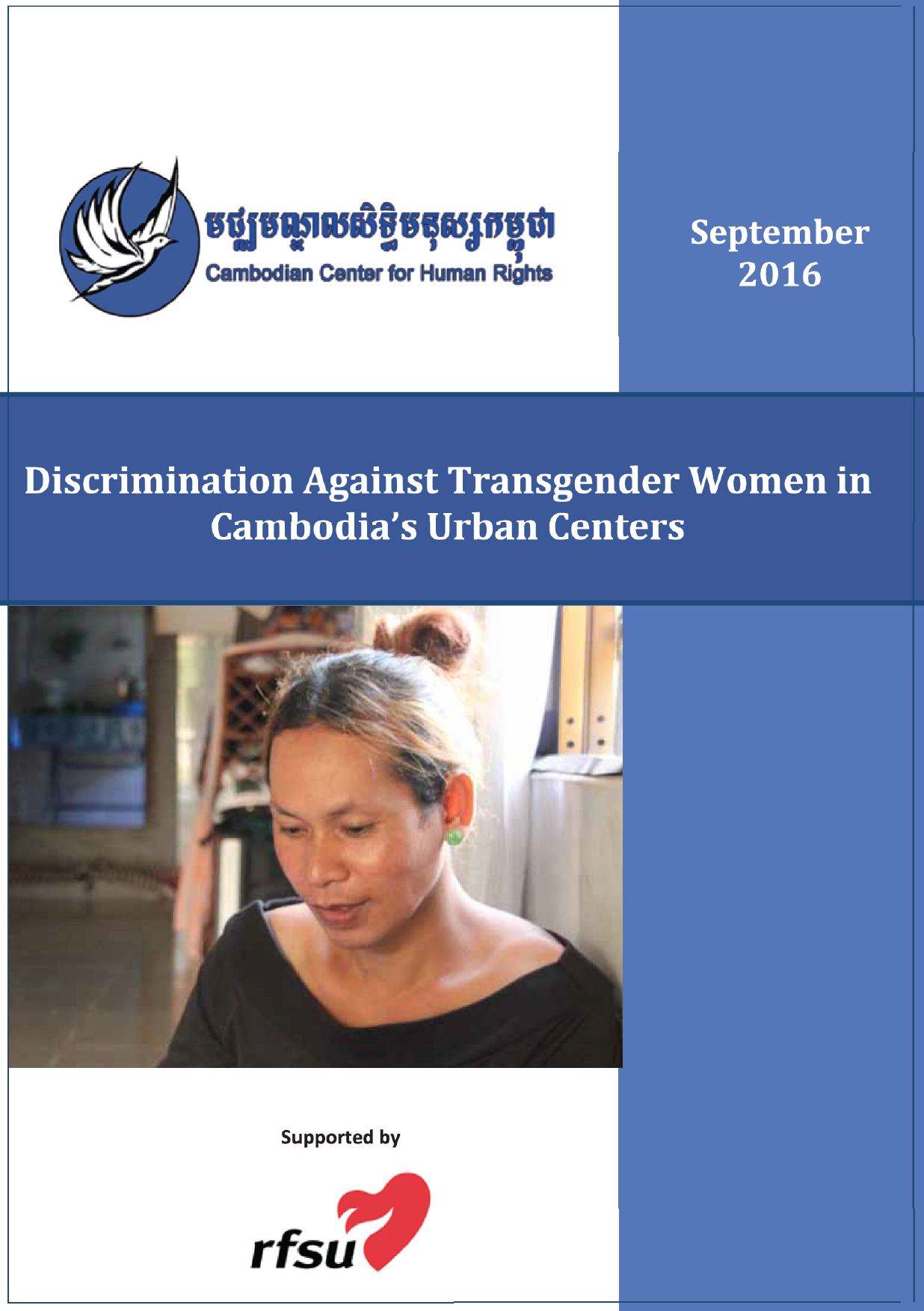
Discrimination Against Transgender Women in Cambodia’s Urban Centers
Publication Year: Sep 2016 / Sources: Cambodian Center for Human Rights (CCHR)This research report documents human rights issues faced by transgender women in Cambodia’s Urban centers, and recommends actions to secure their rights to equality, dignity, health and security.
Download: English | Khmer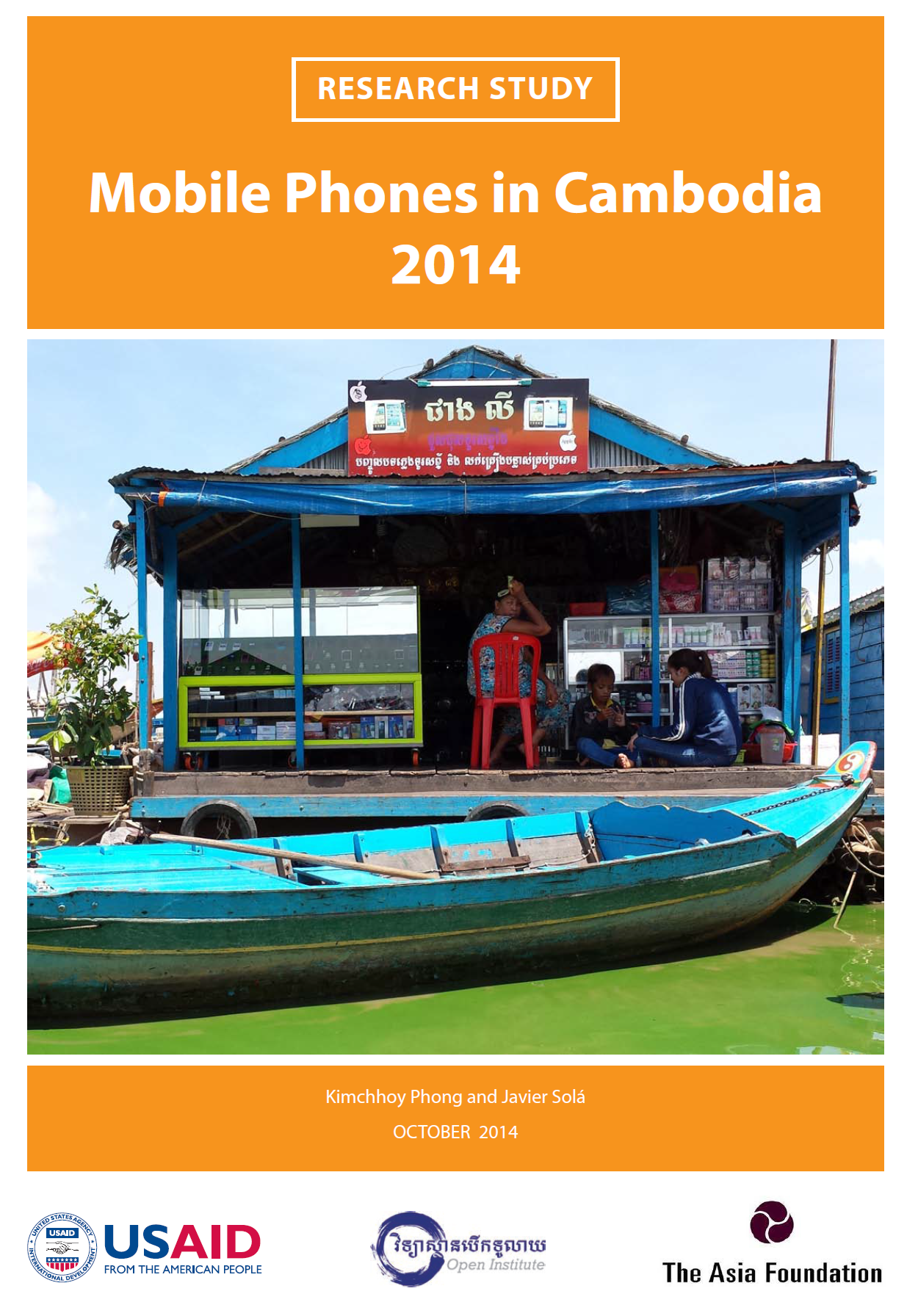
Mobile Phones in Cambodia 2014
Publication Year: 2014 / Sources: Open Institute (Phong Kimchhoy, Javier Sola)This study’s findings respond to the need to understand whether phones can be used as a tool for government and civil society organizations to communicate directly with citizens and beneficiaries all over Cambodia, offering them information and services in written Khmer.
Download: English | Khmer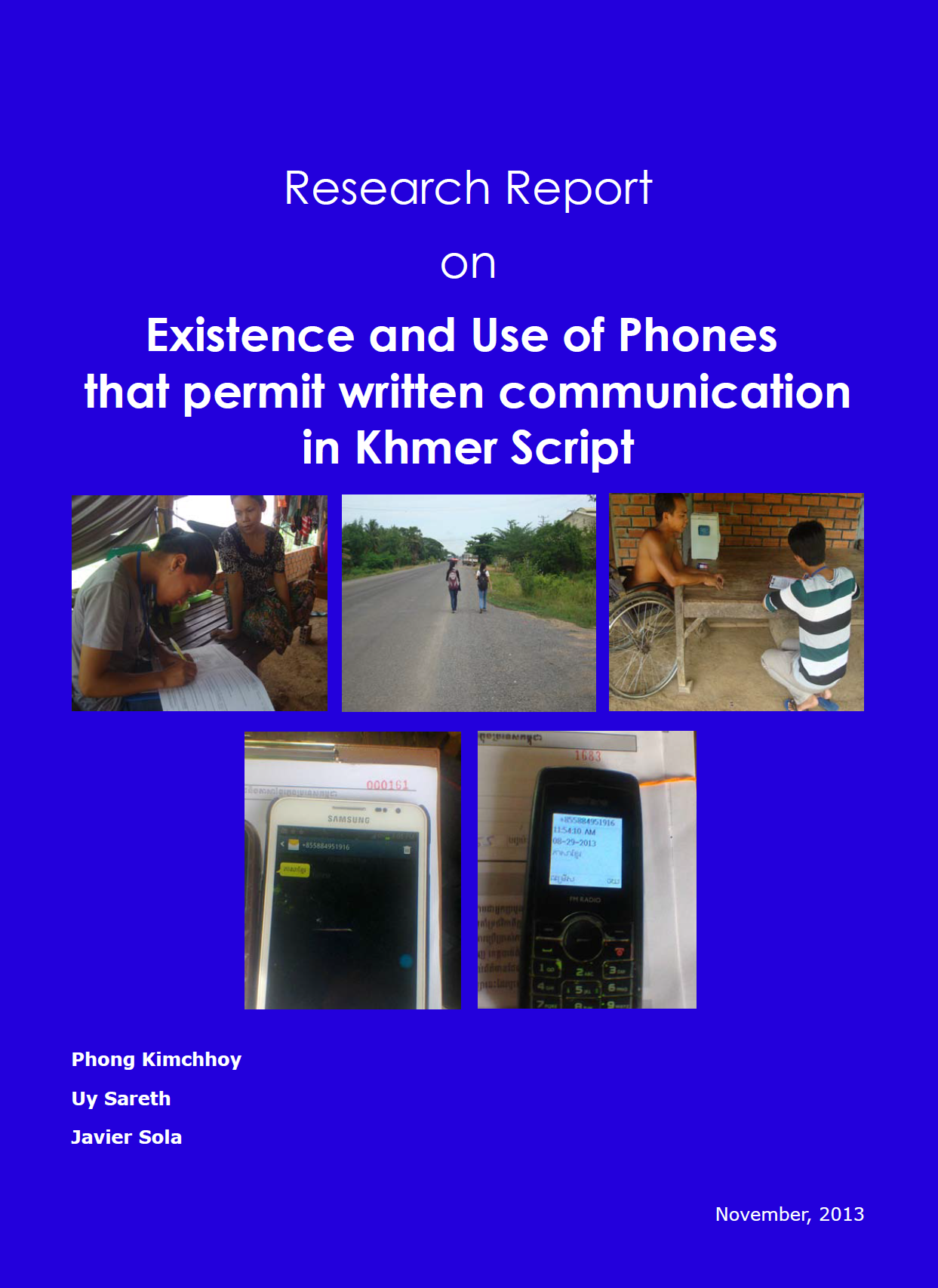
Existence and Use of Phones that permit written communication in Khmer Script
Publication Year: 2013 / Sources: Open Institute (Phong Kimchhoy, Uy Sareth, Javier Sola)This study responds to the need to understand if SMS can be used as a tool for government and civil society organizations to communicate directly with citizens and beneficiaries all over Cambodia, offering to them information and services in Khmer through mobile phones. It also attempts to understand if smart phones are or will become a key device for accessing Internet and social media in Cambodia, as these networks are quickly becoming the main source of information for youth.
Download: English | Khmer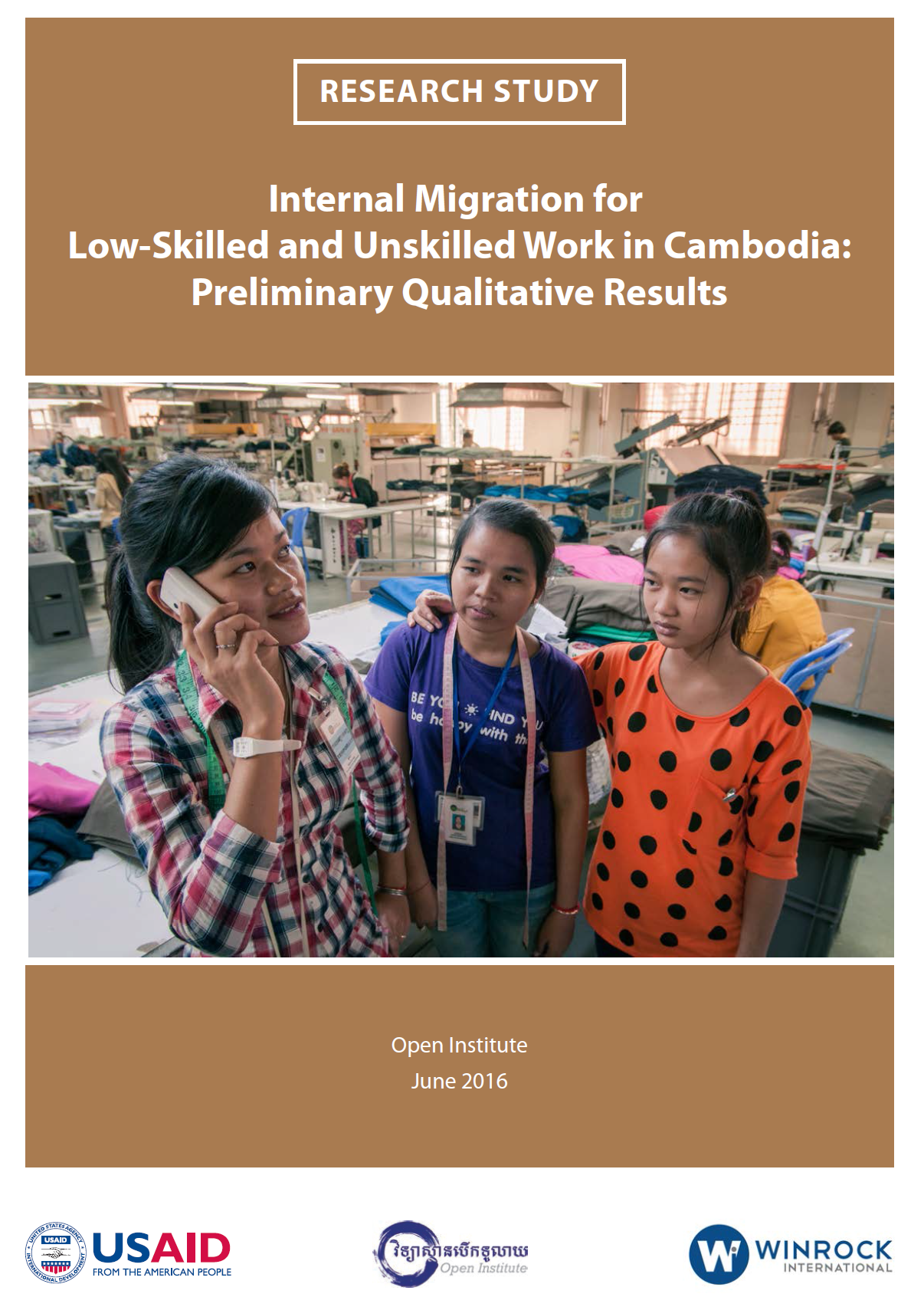
Internal Migration for Low-skilled and Unskilled Work in Cambodia: Preliminary Qualitative Results
Publication Year: June 2016 / Sources: Open InstituteIn order to propose solutions to reduce the disconnect between the national demand for unskilled and low-skilled employment and potential national workers, it is first necessary to undertake qualitative research with the following objectives:
1. To have a preliminary understanding of the structure of the main sectors that absorb national migration: garment, construction, hospitality and security
2. To have a preliminary understanding of the present hiring process of local Cambodian employers in the targeted sectors
3. To have a preliminary understanding of internal migration paths and practices
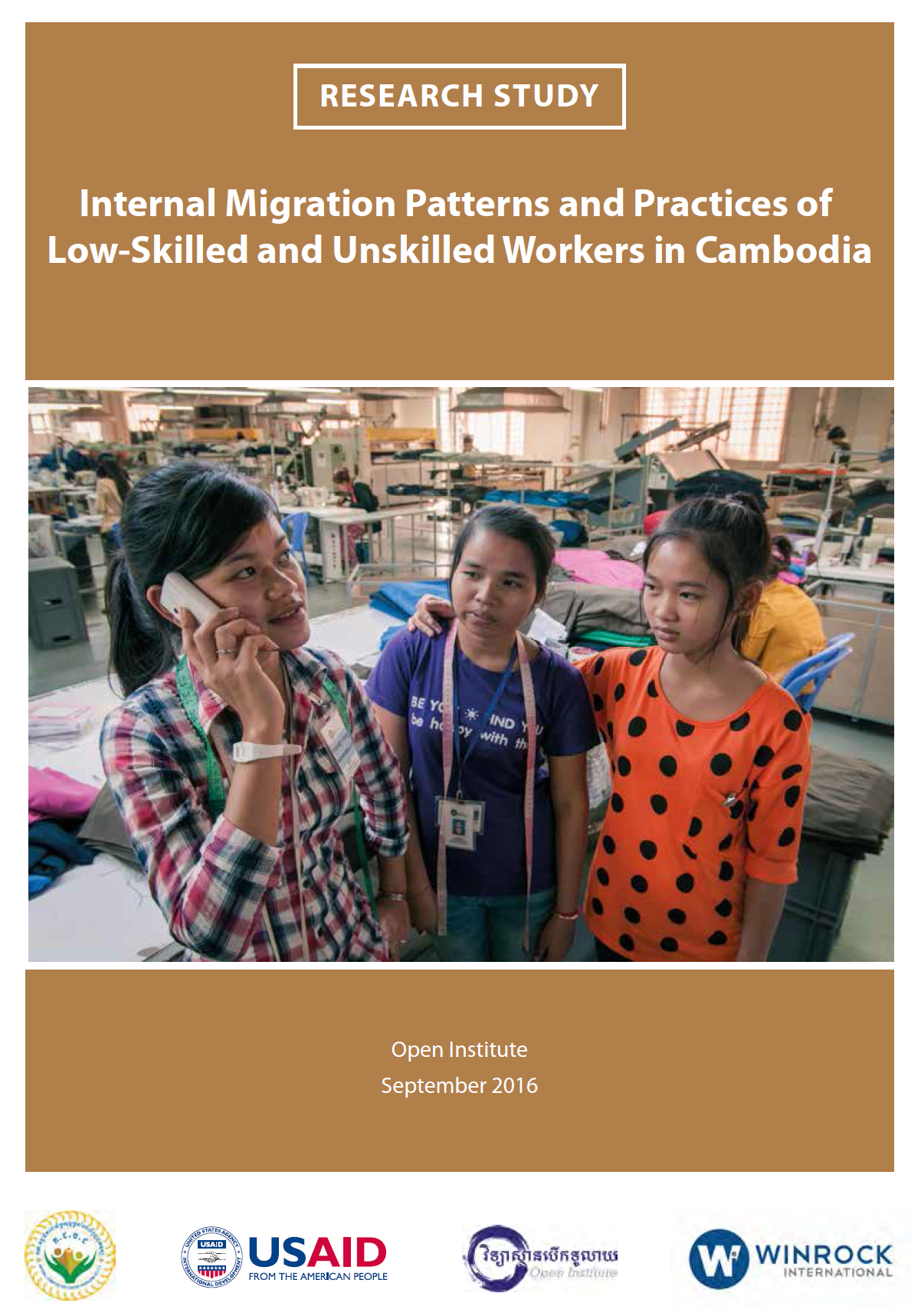
Internal Migration Patterns and Practices of Low-skilled and Unskilled Workers in Cambodia
Publication Year: Sep, 2016 / Sources: Open InstituteThe data shows that there is constant availability of work all year round in the sectors of Manufacturing, Construction, Hospitality and Security, with a peak of labor demand after the two main holidays. The main and most effective method of communication used by companies to find new employees is to communicate the job opportunities to their existing workers, who relay this information to potential workers who might be interested. HR managers are nevertheless technology-savvy and they are open to use electronic channels to find new workers.
The main conclusion is that, while a clear mechanism for accessing low-skilled and unskilled employment exists in Cambodia based on the trust relationships between potential migrants and family members and friends who are already working, this
mechanism is not sufficient to meet the demand for unskilled and low-skilled labor in the country, nor does it provide work in Cambodia to all potential migrants who would prefer to work in their own country. A significant portion of cross-border migration is most probably motivated by this disconnect.
